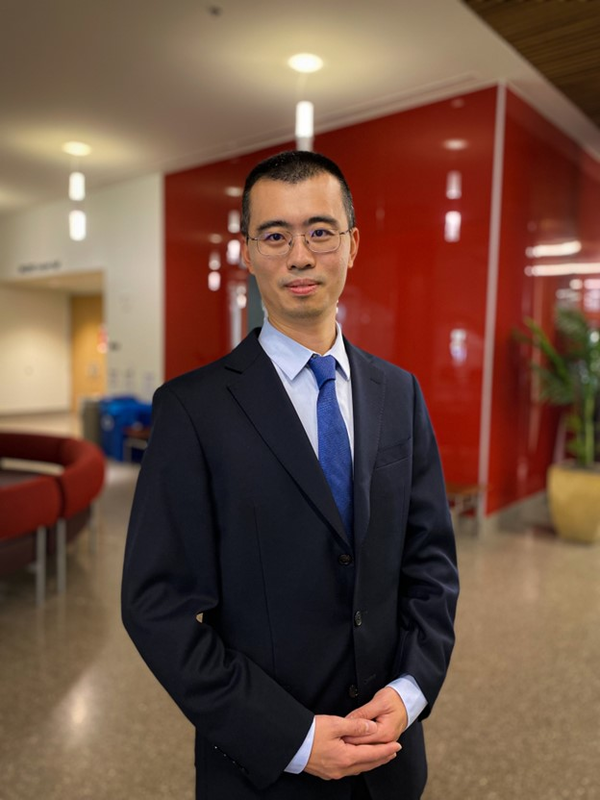
BIOE 500 Seminar: Yuan Yang, Ph.D., University of Oklahoma
- Event Type
- Seminar/Symposium
- Sponsor
- Department of Bioengineering
- Date
- Feb 21, 2023 11:30 am - 12:20 pm
- Views
- 227
- Originating Calendar
- Bioengineering calendar
Neural Engineering for Stroke Rehabilitation: Tools for Mechanistic Studies Toward Targeted Intervention
After a unilateral or hemiparetic stroke, damage to the corticospinal tract in the lesioned side of the brain increases the abnormal reliance on motor pathways in the contralesional side of the brain. This has been shown to be the pathophysiological basis for post-stroke spasticity and related motor impairments. Based on computational modeling and human subject experiments, we developed a novel brain-muscular connectivity measure that allows the determination of the stroke-induced change to the usage of different motor pathways and its link with post-stroke motor impairments. Using an advanced multimodal brain imaging approach, we found the change to the motor pathways is likely associated with and permitted by a hemispheric shift of sensory processing toward the contralesional sensorimotor areas. To combat these maladaptive functional changes in the sensorimotor system, we developed a novel non-invasive electrical brain stimulation intervention that targets specific brain regions in a more precise way than before. The preliminary results from our registered clinical trials in moderate-to-severe impaired stroke individuals demonstrated that this novel intervention can effectively reduce post-stroke motor impairments. The innovative multimodal brain imaging approach and brain stimulation technologies developed in our stroke research have broader impacts that can be translated to investigate other neurological disorders and brain functions, such as pain and opioid control, sex difference in brain and aging. Beyond the research, our effort has also been made to promote education, outreach, diversity and inclusion in rehabilitation engineering and brain research.
Dr. Yuan Yang has an interdisciplinary background with his Bachelor's (2008) and Master’s (2010) Degrees in Biomedical Engineering (BME), and Ph.D. (July 2013) in Signal and Image Processing with a focus on machine learning and brain-computer interfaces. After his Ph.D., Dr. Yang had around four-year postdoctoral training (2013-2017) in Bio-Mechanical Engineering at the Delft University of Technology in the Netherlands. During his postdoc, he also received clinical research training and worked with clinician investigators at Reinier de Graaf Hospital – Delft (Neurology) and VU University Medical Center – Amsterdam (Rehabilitation Science). He was an Assistant Professor in Physical Therapy and Human Movement Sciences at Northwestern University Feinberg School of Medicine from 2017-2020. He moved to the University of Oklahoma in 2020 and opened his new Neural Control and Rehabilitation Laboratory as a Tenure-Track Assistant Professor in Biomedical Engineering, Electrical and Computer Engineering (Adjunct), and Rehabilitation Sciences (Adjunct). He is currently leading a multi-site engineering-based human research laboratory at Tulsa and Oklahoma City with the main research topic on stroke rehabilitation and new research directions on pain and opioid control, aging and sex differences in the brain. His research includes mechanistic studies and registered clinical trials. His research is currently supported by a newly funded five-year $1.6M NIH R01, an ongoing MPI R21, a newly awarded three-year American Heart Association (AHA) Career Development Award, and multiple regional/local research grants, with over 42 peer-reviewed journal publications (32 of them are the senior or first authors). He has been serving on the BME graduate study committee and DEI committee at his current university. He has been serving as an ad hoc reviewer for over 30 peer-reviewed international journals in his fields, as well as an associate editor for a few of them. He has been serving as a grant reviewer for NIH, NSF Smart Health, and other national and international (European and Canadian) funding agencies.